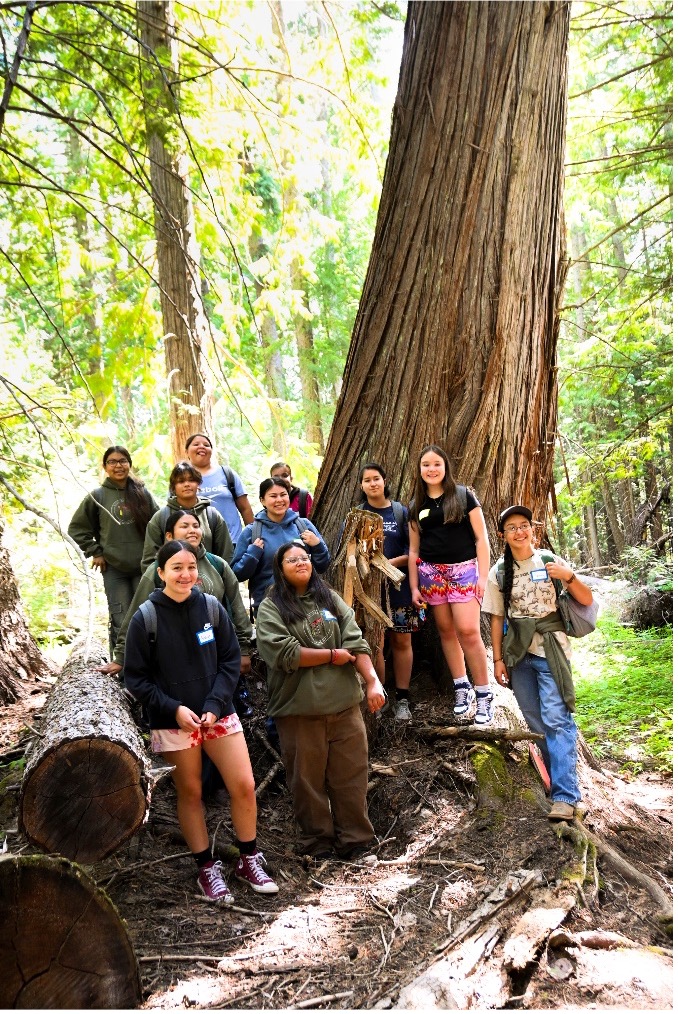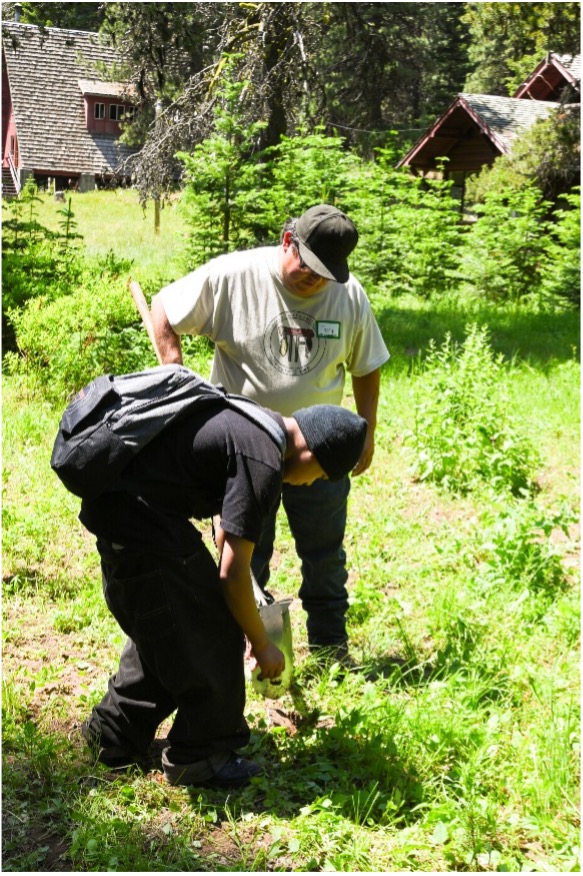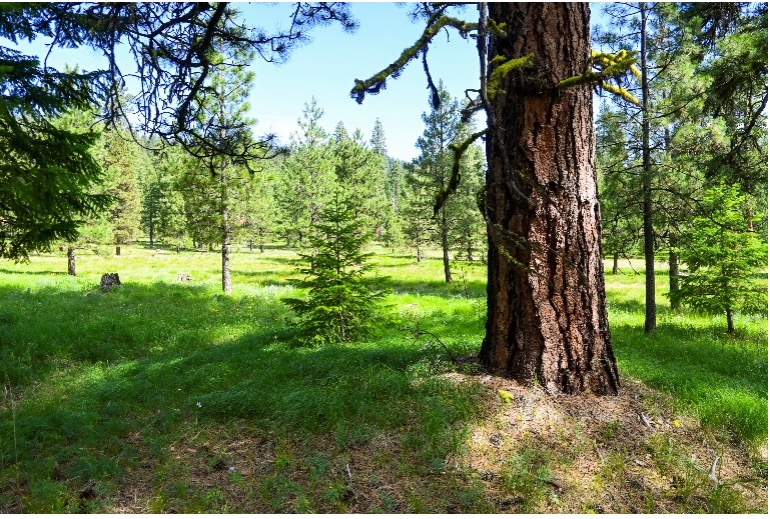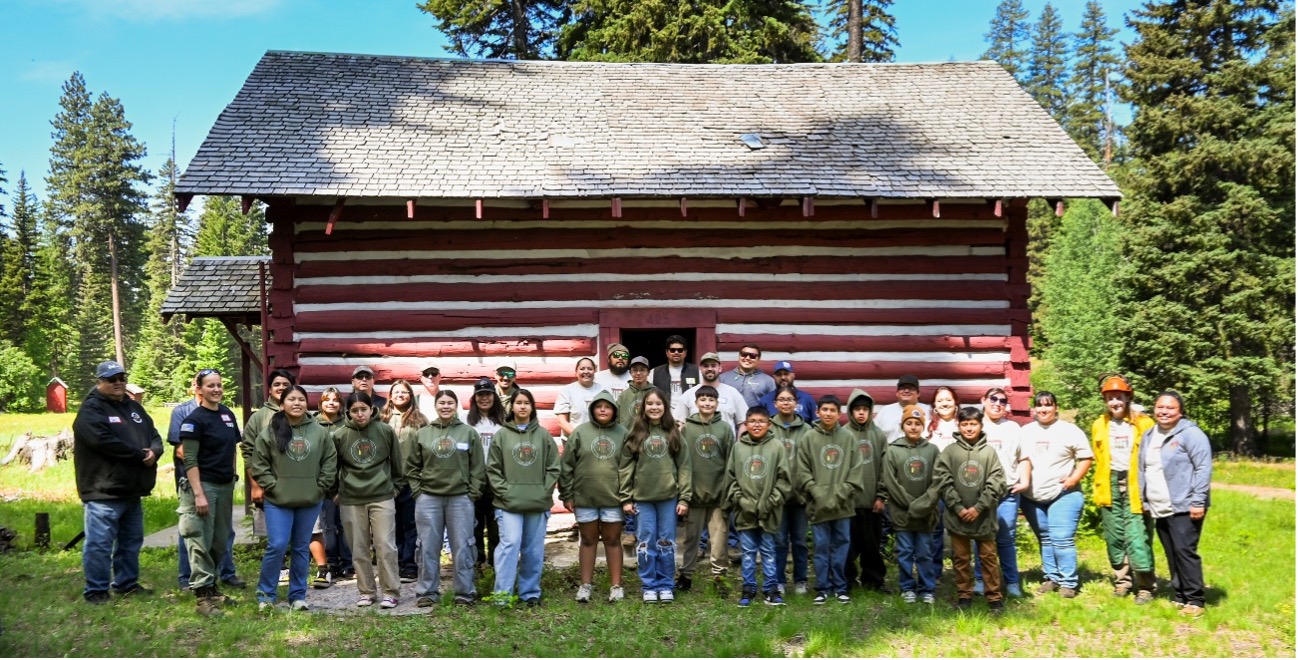By Nick Johnson, Director, Sustainable Supply Chains

For the last two summers, the Yakama Nation has hosted a Youth Forestry Camp on the Yakama Reservation. As a financial supporter of the event, SFI was graciously invited to join the two-day gathering, and I was honored to attend on behalf of the team.
Local youth spent two days with Tribal Forestry staff, exploring career opportunities in forestry. They learned to identify trees and plants, observed the daily work of Tribal Forestry professionals, and even gained hands-on experience with forestry tools and equipment. I didn’t know exactly what to expect, but I realized this was a meaningful opportunity to connect youth to our forests and maybe even spark a lifelong relationship with the natural world. Coincidentally, this was also a new experience for me: the first time I toured forests certified to the SFI 2022 Forest Management Standard.

We began the first day of camp at the Forest Development Office on the Yakama Reservation in White Swan, Washington. Once all of us—youth participants, Tribal Forestry staff, and chaperones—loaded into vans and pickups, we made our way north through the expansive forests of the Yakama Nation to a decommissioned ranger station.
Over the course of the hour-long drive, passing acres and acres of ponderosa pine-dominated forests, I found myself struck by the health and beauty of the forest that surrounded me. It was clear that what I was seeing reflected a deep connection between the land and the people who care for it—a level of understanding passed through countless generations. While I was lucky enough to grow up surrounded by forestland, I can’t remember ever seeing any that looked this healthy, vibrant, and balanced. Over the next two days, I began to understand just how important this youth camp is in helping forests stay healthy and productive for future generations of the Yakama Nation.

Figure 1
The rest of the camp flew by as Tribal Forestry professionals taught youth attendees about a broad range of topics, from the role of fire in maintaining forest health to the tools and equipment used in sustainable forest management. In addition to the educational activities, participants were divided into small groups to explore different parts of the forest. As part of this hands-on learning, attendees were guided on different hikes in some very special parts of the forest. This was a new experience and perspective for many of the youth participants, and the more they learned, the more curious they became.

Figure 2
One of these special hikes took us through (Figure 1) an enormous segment of untouched, virgin timber consisting of some of the largest and oldest old-growth trees I’ve ever personally seen. The second hike (Figure 2) covered an ecologically diverse area that hosted numerous culturally significant plant species, old-growth trees, and lush meadows. As we walked through each of these sites, I couldn’t stop thinking about how few people get to see places like this and how fortunate I was to be there. It also highlighted how important this experience was for the youth participants, some of whom may one day bear the responsibility of stewarding these lands and teaching the next generation.
I took away many insights from the camp, but what struck me most was the emphasis the Yakama Nation Tribal Forestry program places on connecting local youth with their environment, preparing them to manage the forests and pass along the knowledge to future generations. This focus on youth and career pathways is the foundation of a recent collaboration between the Intertribal Timber Council (ITC), which includes the Yakama Nation among its members, SFI, and Project Learning Tree (PLT) to develop Tribal Forestry & Wildland Fire Voices: A Career Guide, a resource aimed at promoting Tribal forestry and supporting workforce development. The guide provides a roadmap for students and young professionals interested in forestry and wildland fire careers, helping strengthen workforce development efforts and ensure the next generation of Indigenous leaders have the tools and opportunities needed to thrive in the forest sector.
The Yakama Nation’s forests are a testament to the care and commitment of their people. As I reflect on their choice to be certified to the SFI 2022 Forest Management Standard, I feel a strong sense of pride in being part of the organization supporting the long-term health and resilience of their forests.

